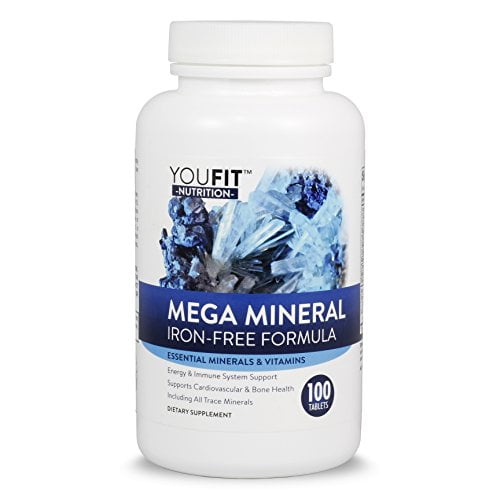

Be sure to consult a healthcare provider if you want to use magnesium citrate for chronic constipation, as it can lead to dehydration and an imbalance of key electrolytes. Magnesium citrate pulls water from the body into the gastrointestinal tract, which can increase gut motility, creating a laxative effect. It is well absorbed and touted for its ability to treat constipation due to its potential laxative effect. Magnesium citrate is another readily available form of magnesium that you will see on store shelves. Key specs: Magnesium Type: Magnesium glycinate | Form: Powder | Servings Size: 1 scoop or 3 grams | Magnesium per Serving: 200 mg | Servings per Container: 60

Price at time of publication: $44 for 60 count ($1.36 per serving) It is sweetened with monk fruit, a non-nutritive sugar substitute. This product is third-party tested and NSF Certified for Sport, making it a great choice for athletes in need of a magnesium supplement.
#BEST TRACE MINERAL SUPPLEMENT 68 FREE#
Thorne’s Magnesium Bisglycinate contains 200 milligrams per serving and is free of major allergens, including gluten, dairy, and soy. The amino acid glycine may enhance the quality of sleep in humans, making this magnesium glycinate powder a great addition to help wind down in a bedtime routine. As mentioned earlier, magnesium glycinate is a well-tolerated and highly absorbable form of magnesium. Magnesium Bisglycinate from Thorne is the magnesium glycinate form we love but in a powder version that you can easily mix with water. Key specs: Magnesium Type: Magnesium glycinate | Form: Capsule | Servings Size: 1-4 per day | Magnesium per Capsule: 120 mg | Servings per Container: 3 size options (90, 180, 360)Īdditional ingredients include citric acid and monk fruit Price at time of publication: $41 for 180 count ($4.39 per serving)

Each capsule contains 120 milligrams, providing nearly one-third of the RDA for magnesium for most adults. In addition to the rigorous testing, this magnesium glycinate is certified gluten-free, non-GMO and vegan. They utilize third-party laboratories and are NSF-registered as a facility. Pure Encapsulations tests all raw materials for identity, potency, contaminants, and heavy metals. This makes magnesium in a chelated form, which can get absorbed better in the intestine.ĭue to its tolerability, many are able to dose at higher amounts with minimal gastrointestinal distress and other side effects when compared to other forms of magnesium, making magnesium glycinate the preferred type for correcting deficiencies. Magnesium glycinate typically has increased tolerability and absorption because the magnesium is bound to the amino acid glycine. Pure Encapsulations Magnesium tops our list because it is from a trusted, third-party-tested brand and contains a preferable form of magnesium. For this round-up, we prioritized supplements that are third-party tested and contain research-backed forms of magnesium in appropriate dosages. Magnesium supplements are available in many different forms, each with different benefits, absorbability, and effects on the body. If a healthcare provider has recommended you start a magnesium supplement, be sure to fully understand the ideal form and dosage best suited for you and your needs. For example, those with certain gastrointestinal disorders that cause constipation, pregnant and breastfeeding people, people with diabetes, and older adults may have increased magnesium requirements. If you are unable to meet your needs or if you have a health condition or a dietary restriction that may impact your magnesium status, you may benefit from a magnesium supplement. However, nearly half of Americans may not be meeting their estimated average requirement of magnesium from food. As with most vitamins and minerals, it is preferred to get your magnesium from food first, incorporating magnesium-rich foods like seeds, nuts, spinach, whole grains, yogurt, and legumes. Magnesium is an essential mineral involved in several processes in the body, including blood sugar control, muscle function, nerve messaging, and protein production.


 0 kommentar(er)
0 kommentar(er)
